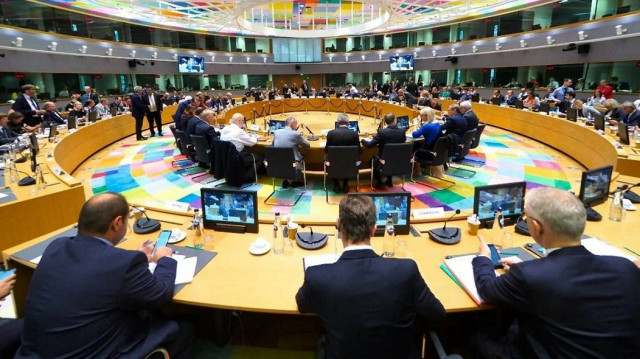
European Commission will not hesitate to use tools at its disposal to ensure that EU law is safeguarded, says European commissioner
European affairs ministers decided Tuesday to maintain the European Union's Article 7 procedure against Hungary's "rule of law breaches."
"Today's hearing highlighted that significant concerns persist, and regrettably, they have been aggravated...The Article 7 procedure should be maintained as long as the issues that triggered it remain unresolved," European Commissioner for Democracy, Justice, the Rule of Law and Consumer Protection Michael McGrath said after a meeting of the General Affairs Council, where stripping Hungary's voting rights were discussed.
Reaffirming that the discussions would continue, McGrath underscored that Hungary's adoption of a draft transparency law aimed at limiting foreign funding of non-governmental organizations and media organizations would constitute a "serious breach" of EU principles.
"If the law is adopted, the (European) Commission will not hesitate to use the tools at its disposal to ensure that EU law is safeguarded," he added, noting that they do not rule out seeking "interim measures."
McGrath further expressed their commitment to uphold "democracy" and the "rule of law" across the EU.
"We will act decisively and without hesitation whenever necessary to protect these fundamental principles," he added.
The European Parliament launched the Article 7 procedure against Hungary in 2018 after it called for action over alleged rule of law breaches, particularly concerning the judiciary and media freedom.
Since then, EU ministers have held seven hearings and are now holding the eighth but have not advanced to the second phase, which could lead to sanctions such as suspending Hungary's voting rights, often called the “nuclear option.”
Sanctions require unanimous approval by member states, excluding the country concerned, while a formal reprimand needs backing from 80% of states.
Hungary has repeatedly denounced the process as a political attack and has called for changes to the EU's sanctions framework.







